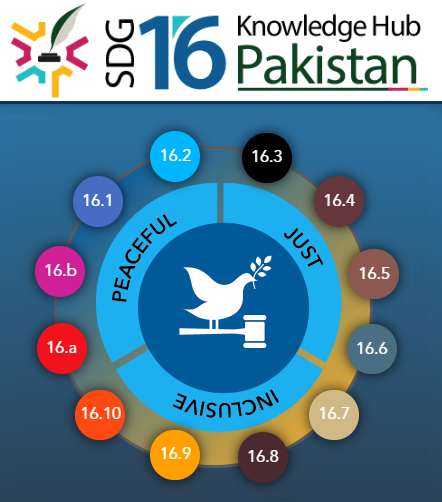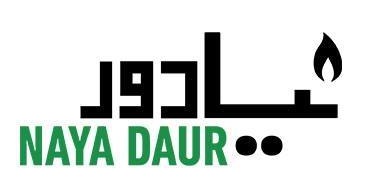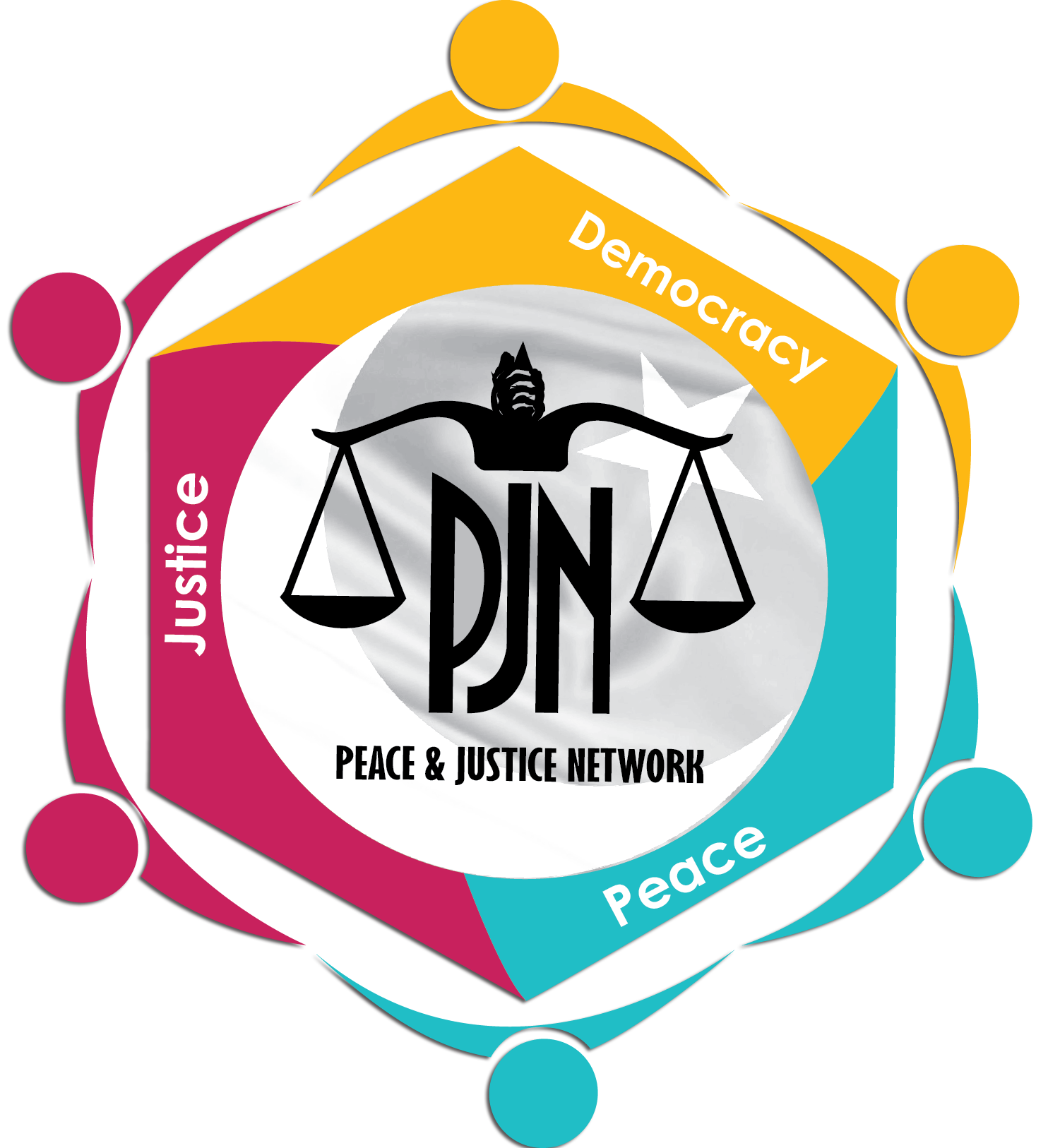

About Us

Peace & Justice Network (PJN) is a registered network of Civil Society Organisations (CSOs), working across Pakistan (in all provinces and territories, including GB and AJK) to help build institutions which can strengthen democracy, deliver quick and inexpensive justice, and manage conflict in a way that protects the fundamental rights of citizens.
PJN strives to provide this platform to serve as a hub for strategic rule of law planning and management, policy advocacy, programme networking, stakeholder communication and coordination, and partner management of fiduciary and programming risks. This gives PJN certain distinct advantages in designing and executing Rule of Law programing with the highest of efficiency and impact:
- PJN has national coverage and outreach capacity, along with grassroots level presence in most districts.
- PJN has formal and informal linkages with a diverse array of institutional stakeholders, including the judiciary, regional bar associations / councils, parliamentarians and political leadership, prosecution, police and parole and probation authorities. These linkages can be leveraged for providing upstream policy analysis and advice sourced from the grassroots.
- Despite its diversity of membership, PJN provides a single-window for interaction with the government and international donors, through its duly empowered and representative Secretariat in Islamabad.
- PJN has extensive experience in Rule of Law, especially in raising legal literacy and awareness and providing legal aid. Member organisations have a sizable portfolio of multi-million dollar programming conducted on behalf of a broad range of international donors with successful impacts on ground, as verified by third-party evaluations.
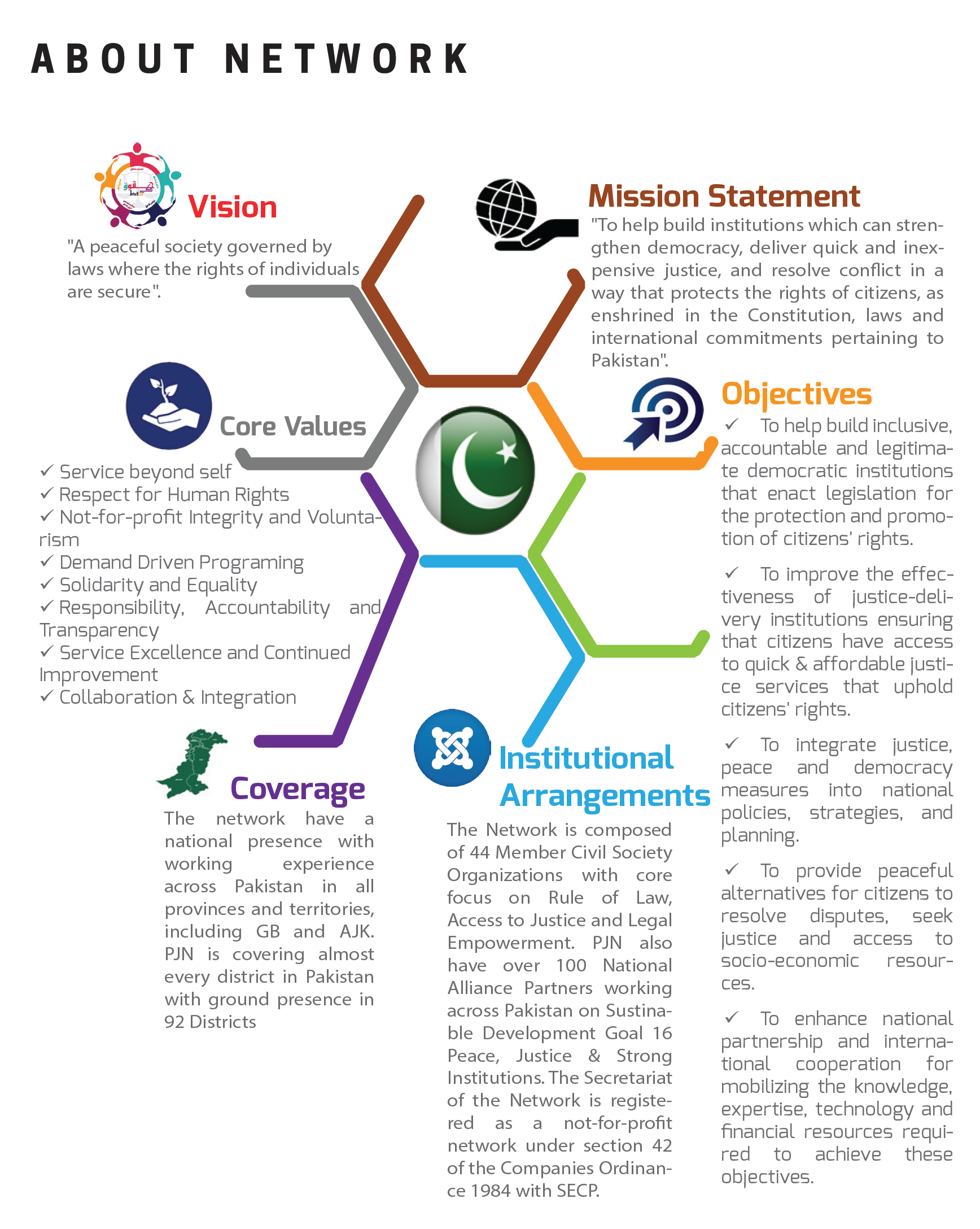
PJN Theoretical Framework
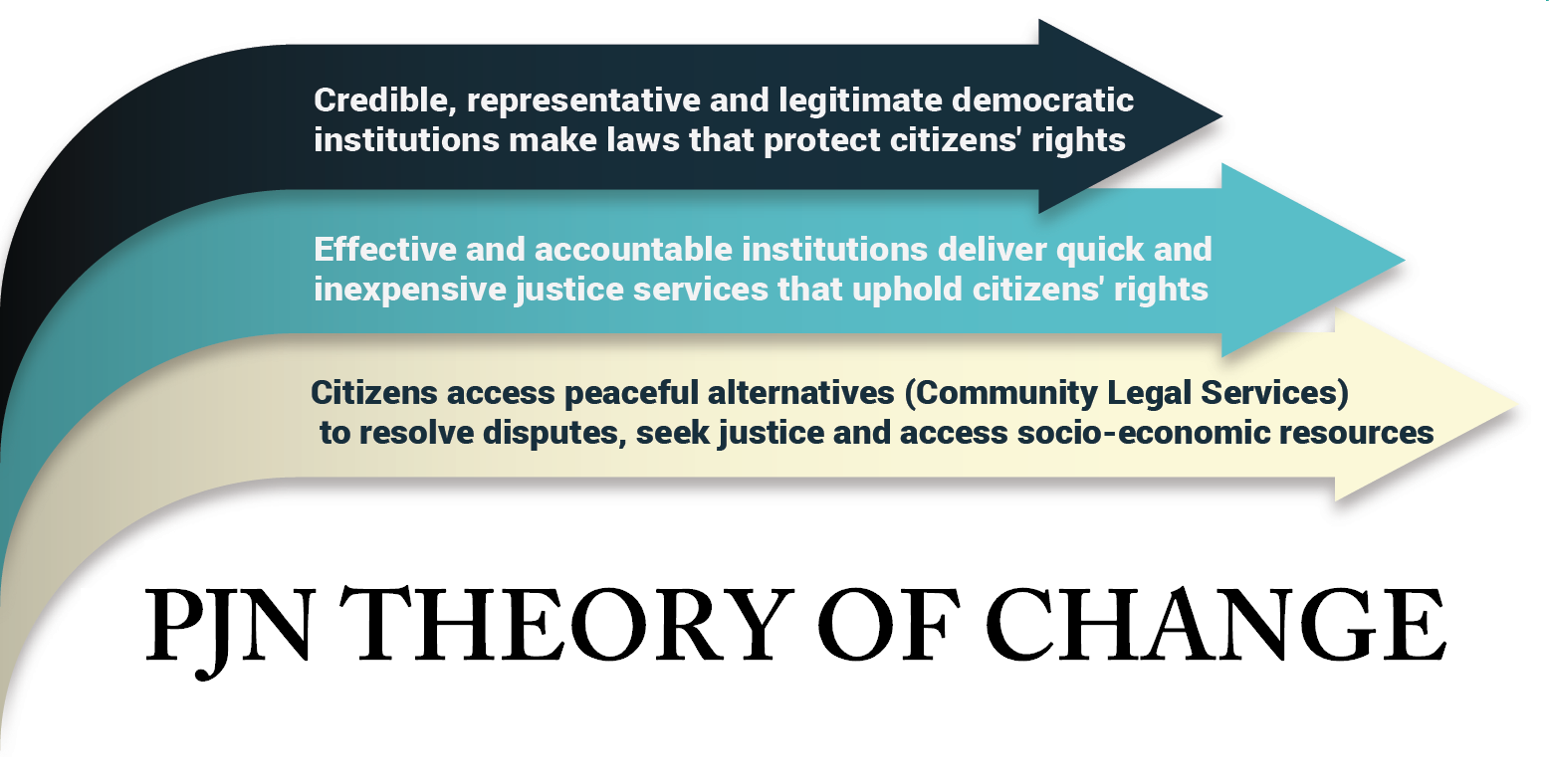
Both the recent uptick in international rule of law focus and increasing policy attention by the government in justice, peace and strengthening democratic institutions warrant the need for a shared platform for learning, experience sharing and coordination in the sector. The number of CSOs working in this sector has also witnessed a strong mushroom growth. However, the desired impact is still lacking due to the prevalent individualistic approach; unless these stakeholders think and act together, efforts will be fragmented and duplicated while the impact will be diffused. The Peace & Justice Network upends this model to place the establishment and strengthening of the Rule of Law itself as the ultimate objective. Viewed in this manner, there is no higher goal than establishing a society governed by laws: strengthened Rule of Law is not a means to an end – but an end in and of itself. In economic terms, it is a pure public good, bracketed with central banking, foreign policy and national defence, and as such cannot be de-prioritised or placed secondary to any other consideration. In political science terms, it is an intrinsic responsibility that the state must fulfil for legitimately exercising any authority over its citizens.
In addition, peace-building, democratic-strengthening and justice-sector improvements are not posited as distinct pillars in theory or components in programme design – but as preconditions in terms of creating an enabling environment for effective Rule of Law, as well as constituent elements of the way Rule of Law is defined for the purposes of Network activities and programmes. This means that democracy, peace and justice must exist for Rule of Law to be effective and at the same time Rule of Law means democracy, peace and justice for all Pakistanis. The litmus test to assess each of these terms – democracy, peace, justice, and Rule of Law – is the degree to which they secure the protection of citizens’ fundamental rights. If democracy exists then laws will not contravene, but in fact seek to uphold the fundamental rights of citizens. If justice prevails, then these laws will be implemented in ways that safeguard these rights not just in theory but on the ground. If peace is sustained then these rights will be remain inviolable for all citizens.
Finally, the underlying emphasis throughout this debate is on institutions. The Peace & Justice Network (PJN) recognises that institutions – both formal and informal – determine how laws are implemented, perceived and endorsed. These institutions include political parties, legislatures, the judiciary, police, prosecution, prisons, parole and probation authorities as well as informal justice mechanisms, civil society institutions and corporate organisations. The Network will attempt to build their capacity, inform their decision-making, raise their awareness, and strengthen linkages allowing them to play their due roles and responsibilities in establishing the Rule of Law in Pakistan.
Copyright © 2024 pjn.org.pk
